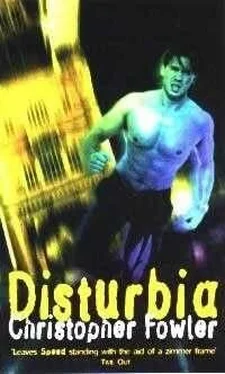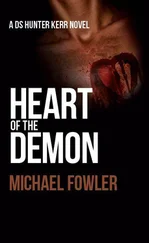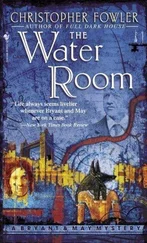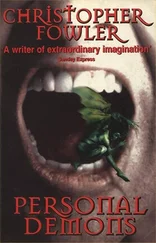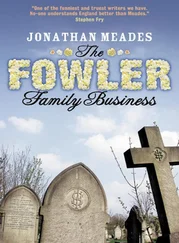Christopher Fowler - Disturbia
Здесь есть возможность читать онлайн «Christopher Fowler - Disturbia» весь текст электронной книги совершенно бесплатно (целиком полную версию без сокращений). В некоторых случаях можно слушать аудио, скачать через торрент в формате fb2 и присутствует краткое содержание. Жанр: Триллер, на английском языке. Описание произведения, (предисловие) а так же отзывы посетителей доступны на портале библиотеки ЛибКат.
- Название:Disturbia
- Автор:
- Жанр:
- Год:неизвестен
- ISBN:нет данных
- Рейтинг книги:4 / 5. Голосов: 1
-
Избранное:Добавить в избранное
- Отзывы:
-
Ваша оценка:
- 80
- 1
- 2
- 3
- 4
- 5
Disturbia: краткое содержание, описание и аннотация
Предлагаем к чтению аннотацию, описание, краткое содержание или предисловие (зависит от того, что написал сам автор книги «Disturbia»). Если вы не нашли необходимую информацию о книге — напишите в комментариях, мы постараемся отыскать её.
Disturbia — читать онлайн бесплатно полную книгу (весь текст) целиком
Ниже представлен текст книги, разбитый по страницам. Система сохранения места последней прочитанной страницы, позволяет с удобством читать онлайн бесплатно книгу «Disturbia», без необходимости каждый раз заново искать на чём Вы остановились. Поставьте закладку, и сможете в любой момент перейти на страницу, на которой закончили чтение.
Интервал:
Закладка:

Christopher Fowler
Disturbia
For Bal Croce, whose energetic pursuit of London's hidden
histories inspired this tale.
Acknowledgements
The solidarity and support of Richard Woolf made this book possible, and for this I am eternally grateful. Jim Sturgeon is the sensible half of my brain. Our creative partnership spans almost a quarter century, and that's where the ideas come from. Thank you, James. Maximum love, as always, goes out to parents Kath and Bill, superbro Steven, Sue and family.
FAQ: How do I find the time to write when I have a day job? With the help of great friends like Mike and Sarah, Jo, Twins Of Evil Martin and Graham, David and Helen, Damien, Sebastian, Alan, Jeff, Richard P, Sally and Gary, Pam, Maggie, Poppy, Amber, Stephanie, Di, Kevin, Lara, Michele. My agent Serafina Clarke may not be entirely au fait with the Internet but makes a superb champagne cocktail, a far more desirable skill. Editor Andrew Wille and Nann du Sautoy are as essential as Wordperfect, and I suspect represent the 'X-Files' end of Little, Brown; my kind of folks, as are Jenny Luithlen and Pippa Dyson, international rights and UK film rights respectively, and Joel Gotler at Renaissance. Thanks also to fellow authors Graham Joyce, Nick Royle, Kim Newman and Joanne Harris.
Part One
'Si monumentum requiris, circumspice'
– Wren's inscription for St Paul's
('If you seek a monument, look around')
Prologue
'All That Mighty Heart Is Lying Still.'
Taken from the Foreword of City of Night and Day by Vincent Reynolds.
NO LIVING person has seen London. Its meadows and pastures are buried beneath layers of concrete, brick and bone, its topography and history crushed by the sheer weight of events. Within an ever-changing circumference is concentrated such a tumultuous deluge of life that the palaces of the Bosphorus seem dull in comparison.
London is a city of myth. Its buildings hold and hide legends. Its rivers are lost underground. Its backstreets vanish into fable. Its characters are blurred between fact and fiction. Truths have been twisted by fantasy. Tourists are rendered blind, stepping around beggars to photograph the past, and sit in parks reading of a city that only springs to life in the mind, for in reality only the faintest outline traces now remain.
London is a cruel city. Beneath the rosy veils of lore and imagery its architecture is at best grand and callous, at worst patched, shabby and vulgar. It gives no guidance to the lost, no comfort to the lonely, no help to the abandoned. It has no truck with sentiment, and no interest in its own mythology. Its buildings, like its people, are often defined by the negative shapes they leave on the retina. They lack both the florid invention of the French and the bland utility of the American. London is muddling through and unavoidable, like a garrulous drunk making uncalled-for conversation. Whereas its form once sprang from a collective energy of purpose, it is now defined by the manufacture of money. If its parks were not protected, they too would now be built upon, and out to the very edge of the street, in order to maximise office space.
Its residents are divided; secretive and arrogant, briskly condescending, or confused and gentle, slightly disappointed. For some it is still a sanctuary of civilisation, to others a living Satanophony. There are no glitzy showtunes written about this city, only a handful of rumpty-tumpty music hall dirges.
Once, though, it was a living, breathing thing, its buildings homogenously palladian and baroque, its roads spacious, its parks tranquil. This is the London of collective memory; warm solid buildings of dirty white stone, dingy soot-streaked stations with a curiously sharp metallic smell, children trudging through wet green parklands, low sunlight in narrow streets, and people, people everywhere. A city traversed by railway cuttings and canals, and at its heart the curious silence of a broad grey river, glistening like dulled steel.
The war, the developer, the councilman, the car, each has taken a turn in London's destruction. It is a city scoured by perpetual motion. All that is left now are pieces of brilliant brittle shell, the remnants of a centuries-long celebration of life, fractured glimpses and glances of what was, and what might once have been.
And yet…
There are places that still catch the city's fleeting spirit. Little to the West, and not much in the centre, where only visitors stroll on a Sunday in the Aldwych. But there's Greenwich Park at early evening, the river mist settling below the statue of General Wolfe. The silver glow of St James's Park after dark, gothic turrets beyond the silhouettes of planes and chestnuts, above lakeside beds of tulips and wallflowers. Charing Cross Road beneath early morning drizzle. Bloomsbury in snow. The dolphin-entwined lamps of the Embankment, when a hesperidian sun ignites the Thames and the lights flick on like strings of iridescent pearls. St Paul's at daybreak, stark and unforgiving, less barren than Trafalgar Square but just as immutable. Sicilian Avenue, ornately silent on a hot, dead afternoon. The arches of Regent Street like stone sunrises, sweeping across sideroads. These and a thousand other points of brightness remain, skin-prickling intersections on a vast spiritual grid.
And there are its people; resilient, private, wilful, defiantly odd. There's little can be changed in them. Their ability to trust is the city's greatest strength – and its most devastating curse.
London is a city only halfway in light. Not all of its walls are bounded in brick and stone. Its mysteries are diminished but not gone. Its keys are well hidden because the key-holders are invisible to the public. A few last selfish truths still remain here, cushioned and sheltered by power and class and money. They are protected by nothing more or less than the will of the landowners to survive for one more century. Nothing you can do will ever bring them out into the light, for the enemy is too elusive. He shape-shifts among the buildings, daring you to find him, knowing your task is quite impossible.
'Dear God! The very houses seem asleep, And all that mighty heart is lying still!' wrote William Wordsworth at Westminster Bridge early one morning.
Perhaps one day, some brave Prometheus will carry the light into the city, and bring the sleeping giant fully back to life. Then, reader, beware.
CHAPTER ONE
APART FROM one niggling annoyance, Sebastian Wells felt at peace with the world. He had just ignited a particularly fine cigar of Cuban extraction, and had drunk the decent portion of a magnum of Bollinger, albeit from a plastic cup. He was leaving one pleasurable venue, a box at the Royal Festival Hall where he had been attending a charity recital of Offenbach arias, and was heading for another, the Palm Court at the Waldorf Hotel. The violet dusk had settled into a late-summer night that was warm and starless. Ahead of him, confident couples fanned across the walkways of the South Bank and awkwardly climbed the stairs to Waterloo Bridge to collect their cars. Others strolled in evening dress beside the river, transforming the barren concrete embankment into a set for a champagne commercial. There was an air of gentle joviality. Sebastian felt unusually stately and benevolent, willing to be swayed in his argument, although perhaps not ready to concede it.
Читать дальшеИнтервал:
Закладка:
Похожие книги на «Disturbia»
Представляем Вашему вниманию похожие книги на «Disturbia» списком для выбора. Мы отобрали схожую по названию и смыслу литературу в надежде предоставить читателям больше вариантов отыскать новые, интересные, ещё непрочитанные произведения.
Обсуждение, отзывы о книге «Disturbia» и просто собственные мнения читателей. Оставьте ваши комментарии, напишите, что Вы думаете о произведении, его смысле или главных героях. Укажите что конкретно понравилось, а что нет, и почему Вы так считаете.
